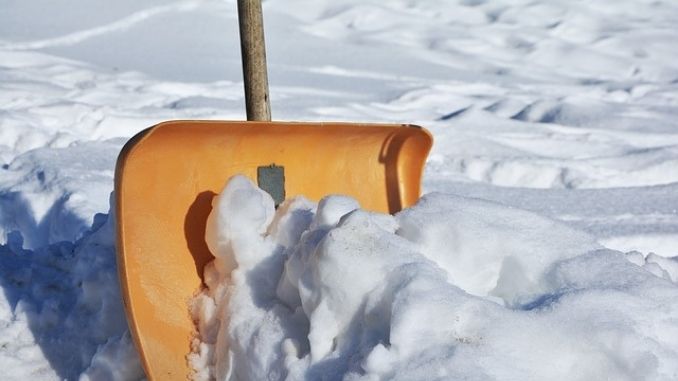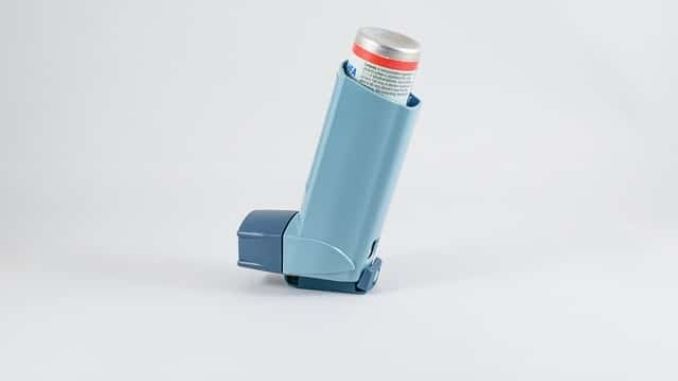
Winter isn’t just cold and uncomfortable for many of us. It can also put our health at risk.
The dropping temperatures and dry air irritate the respiratory tract, potentially aggravating asthma and other lung conditions, as well as making existing health conditions like heart disease and psoriasis worse. It also traps more people indoors, increasing the spread of viruses and bacteria.
Below are 10 common winter health problems, and how you can better manage them this year.
1. Cold and Flu
Moreover, the Centers for Disease Control and Prevention (CDC) states that common colds are the main reason kids miss school and adults miss work. They may not be serious, but they’re definitely inconvenient and unpleasant.
The flu can be a much more serious situation. The National Center for Complementary and Integrative Health (NCCIH) states that every year, between 5 and 20 percent of Americans get the flu. In 2015, more than 5,000 people died from it.
Furthermore, to reduce your risk of developing either one of these, try these tips:
- Get your flu shot.
- Wash your hands often, particularly after touching someone else or a potentially contaminated surface.
- Keep your hands away from your face to avoid transferring germs that could make you sick.
- Get at least 7 to 8 hours of sleep per night.
- Moreover, eat plenty of fruits and vegetables every day to boost the immune system.
- Stick with your daily exercise routine.
- If you work in an office or other shared space, keep sanitizing wipes with you and wipe down things like doorknobs, refrigerator handles, keyboards, mice and other shared items; do the same in your home if someone in the family is sick and at the gym when using shared equipment.
- Wear gloves.
- Wipe down your purse and cell phone regularly as they can harbor germs.
- Drink plenty of water.
- Skip the cocktail as alcohol interferes with sleep and, if you don’t get enough sleep, you are less resistant to germs.
- If you feel the beginnings of a cold coming on, take a zinc supplement for a day or two as it can help you recover more quickly.
- Use your own pen at the bank, grocery store, restaurant or anywhere else you may have to sign something.
- Do something to relieve daily stress; try yoga, meditation, tai chi, a daily walk or anything that relaxes you.
2. Allergies
We usually think of allergies as a spring, summer or fall sort of problem, but they can bother you in the winter too. Moreover, most are caused by indoor allergens like dust mites, pet dander, mold, fireplace smoke and certain fabrics like wool. The symptoms are similar to those that accompany most allergies and include:
- Sneezing and runny nose
- Itchy, watery eyes
- Sore or itchy throat
- Coughing
- Postnasal drip
- Headaches
- Itchy, irritated skin
To control your symptoms, try these tips:
- Make an appointment with an allergy doctor and get tested for winter allergies, so you can determine what your “triggers” are. Then, avoid those triggers as much as you can.
- If you’re allergic to fireplace smoke, consider using another form of indoor heating. Then, try to avoid going outdoors when the smoke settles in the evenings, particularly if you live in a condensed neighborhood where people run their fireplaces at night.
- Moreover, vacuum and dust regularly, and open the windows on mild days to help reduce indoor air pollution.
- You can suffer from pet dander symptoms more in the winter for a couple of reasons. Pets are indoors more often, and you have less fresh air in the home. Try to vacuum more frequently, keep your pets out of your bedroom and groom them regularly to avoid excess shedding. You may also want to consider replacing carpeted floors with wood or tile since dander clings to carpet.
- Moreover, check your home for mold, and get rid of if it if you find it. Examine any houseplants you have as mold can grow in the soil. Keep firewood outside until you’re ready to burn it and clean mold away in areas like the bathroom, under the kitchen sink and in the basement.
- Change your bedding at least once a week, and wash in hot water to get rid of dust mites. Clean additional blankets when you take them out of the cupboard or closet and air them outside if weather permits. Encase pillows and mattresses in impermeable covers to shut out dust mites. Avoid down pillows and comforters as they can attract dust mites. If you have down bedding, wash it frequently during the winter.
- If you develop hives or a rash, look at what you were wearing. It could be that you’re allergic to the material in your hats, scarves or jackets.
3. Psoriasis and Dermatitis
Cold, dry air sucks moisture out of the skin, drying it out and exacerbating skin conditions like eczema, psoriasis, and dermatitis. A lack of sunlight can also make psoriasis worse as the light available in the summer usually helps reduce flare-ups.
- Avoid long hot showers and baths. They strip your skin of its natural oils. Go lukewarm instead.
- Whenever you wash your hands, apply a moisturizer immediately afterward.
- Use a mild cleanser — it’s usually best to choose a creamy one over bar or gel soap.
- If you live in a dry climate, use a humidifier in your room at night. More moisture in the air will help ease the stress on your skin.
- Moisturize immediately after getting out of the shower and keep your moisturizer with you so you can reapply regularly. If your lotion isn’t helping, go for a heavier, thicker cream that has butter and other natural ingredients in it.
- To reduce psoriasis flare-ups, try to expose your skin to more light. If it’s too cold, try phototherapy, which exposes the skin to ultraviolet light. Treatments are done in the doctor’s office — check with your dermatologist.
- Keep stress under control. Stress makes psoriasis and other skin conditions worse.
- Wear gloves regularly, and cover up other areas of dry skin to protect it from the harsh weather.
- Eat more fatty fish, walnuts, and flaxseed — these are all rich in omega-3 fatty acids, which have been linked with improving skin conditions like psoriasis.
4. Joint Pain
Falling temperatures and changes in barometric pressure can trigger joint pain, particularly if you already have arthritis.
- Dress warmly and try to avoid getting too cold. Pay special attention to hands, feet, and head.
- Exercise regularly to keep joints lubricated.
- Stretch your muscles every night before you go to bed to counteract stiffness.
- Make sure you’re drinking enough water during the day. Hydration helps keep joints more comfortable.
- Try a joint pain supplement like glucosamine-chondroitin, to see if it may help you.
- Try hot and cold therapy — heating pads can help ease tight muscles and reduce pain. Ice can help reduce inflammation after you’ve exerted yourself. Apply for 10 to 20 minutes at a time.
- Take a daily fish oil supplement as it can help ease inflammation.
- Get a massage — tight muscles can pull on joints, making them sore.
- Try a capsaicin joint-relief cream — it may help ease any pain.
5. Heart Attack
Cold weather actually narrows your blood vessels, so if you already have cardiovascular disease, this can raise your risk of a heart attack. According to one study, even in the mild climate of Los Angeles County, 33 percent more cardiac deaths occur in December and January than in June through September. In another study of more than 84,000 heart attack patients, every 1.8-degree Fahrenheit drop in temperature was associated with a 2 percent increase in having a heart attack. Some things you can do when the weather is colder include:
- Dress warmly when you go out, and if you’re not warm enough, go back and try again. Use layers so you can remove articles of clothing as you warm up.
- Be aware of your own fitness levels, and don’t “overdo” it shoveling snow or engaging in some other activity that gets your heart working harder than usual.
- Consider investing in a snow blower or hiring someone to help clear your walkway of snow and ice.
- Be aware of the warning signs of a heart attack, and call for help immediately if you experience them. (Examples include chest discomfort, shortness of breath, jaw pain, breaking out in a cold sweat, nausea and lightheadedness.)
- Avoid alcohol or at least drink in moderation. Drinking too much can raise levels of triglycerides in the blood, cause irregular heartbeats and increase the risk of high blood pressure.
6. Asthma
In a 2014 study, researchers discovered that cold weather could trigger asthma attacks, with more people ending up in the hospital because of them in the winter season. If you have allergies, they can make things worse, especially on days when you’re exposed to your triggers.
- Keep a weekly diary charting your attacks, so you can start to figure out what sort of weather conditions are problematic for you, or which allergens may have been involved.
- Keep your inhaler close by.
- Wear a scarf or hat to cover your mouth and nose, particularly if you have to breathe through your mouth.
- Stay indoors on very cold, windy days.
- Talk with your doctor before winter comes, to be sure you are prepared and that your asthma is under control.
- Drink more water and other fluids — they help thin the mucus in your lungs and make it easier for your body to get rid of it.
- Give yourself ample time to warm up before exercising outdoors.
- Replace filters in your home heating system before you start using it. Dust and debris blown through the system can trigger asthma symptoms.
7. Cold Sores
Cold, dry air dries out the lips, which makes them more vulnerable to the herpes virus. This invader causes those blister-like sores that develop on the lips and around the outside of the mouth.
- Take all the steps noted above in the “cold and flu” section to reduce your risk of contracting the virus.
- Avoid touching anyone who has a visible cold sore. Don’t share utensils, food, drinks or other items with others that may be carrying the virus.
- Stay healthy overall — your resistance will be stronger.
- Lower your stress levels and get enough rest.
- Keep your lips moisturized and healthy. Dry, chapped skin has tiny cracks in it that can allow viruses in.
- Consider taking an L-lysine supplement. It’s an amino acid that is believed to help prevent them.
8. Depression
A lack of sunlight in the winter can rob your brain of “serotonin,” the good mood transmitter. You may feel a little blue while also suffering from fatigue and listlessness. Some things to do if you feel about depression coming on are:
- Get outside for at least 30 minutes during the day as often as you can.
- Continue to exercise — exercise boosts mood.
- Try using a light therapy lamp on those days when you can’t get outside into the sunlight.
- Make a point to spend time with family and friends. Try not to be isolated.
- Eat more foods rich in ingredients that boost serotonin levels like nuts, seeds, legumes, turkey and whole grains.
- Make sure you’re getting enough vitamin D.
- Keep a weekly “gratitude journal” to remind yourself what you’re grateful for.
- Do something every day that makes you happy.
9. Weight Gain
Winter conspires to make us gain weight. Lack of sunlight causes us to crave carbohydrates and sweet foods, and we’re also less active. To avoid this, do several of the following:
- Find winter sports that you enjoy so you can stay fit. Otherwise, stick with your regular exercise routine.
- Be careful of alcoholic drinks — they can add significantly to your daily calorie intake.
- Weigh yourself daily. It helps you spot problems early on when they’re easier to correct. Seeing that you’re maintaining your weight can also keep you motivated.
- Be smart about party snacks — go for cut-up vegetables and fruits, nuts and seeds, protein-packed snacks over store-bought snack mixes.
- Eat your meals slowly, giving your digestive system time to tell your brain that it’s full. Chew each bite carefully before swallowing, and set your fork down between bites.
- Make sure you’re getting 7 to 8 hours of sleep per night. Sleep deprivation affects appetite hormones and can lead to overeating.
- Keep eating yogurt, kefir, miso and other probiotic-rich foods. They keep your digestion system moving and may help in weight maintenance.
- Eat more protein — it will help you resist those carb cravings. Choose lean meats, eggs, yogurt, fish, legumes, nuts, and seeds.
10. Upset Stomach
If you’re overindulging during the holiday season, or visiting family and enjoying large meals, you may experience some stomach upset. Some things you can do to limit the impact include:
- Try sipping ginger tea after the meal to calm digestion. Warm water with lemon juice may also help.
- Stop eating before you get full, and wait for 15 minutes before eating more. It takes at least 20 minutes for your brain to register that your stomach has had enough.
- Use smaller plates when serving yourself.
- Go easy on the rich food items as they are more likely to lead to stomach upset.
- Make sure you’re eating at least 25 to 30 grams of fiber each day as it helps keep digestion flowing smoothly.
- Avoid the tummy-hugging fashions that put pressure on your stomach as they can lead to stomach upset.
For your guide to the best foods to heal and slim your body, check out The Best Foods that Rapidly Slim & Heal in 7 Days, here!








